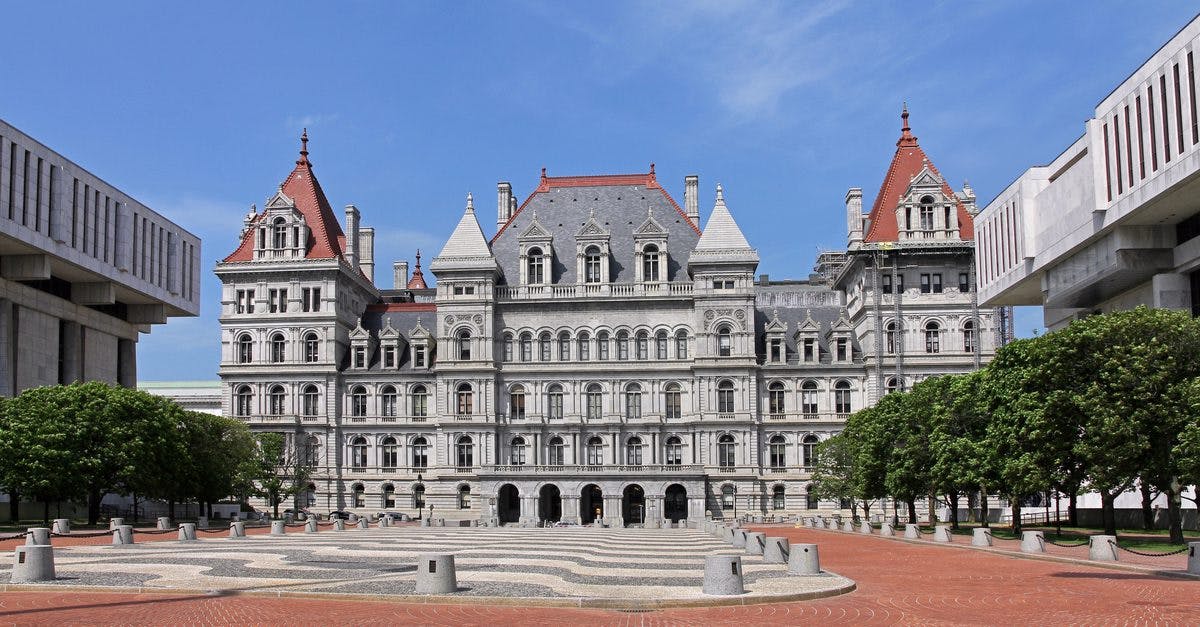Anti-Cryptocurrency Mining Bill Still Alive in NY Legislation
New York failed to pass a measure that would limit cryptocurrency mining operations, but the bill is far from dead.

The New York State Capitol Building, Albany, NY; Source: Shutterstock
- Assembly legislators are expected to revisit the bill next session, which begins in January 2022
- The bill, if passed, will require the state to look into how existing cryptocurrency mines in New York impact the environment
New York failed to pass a measure that would limit cryptocurrency mining operations, but the bill is far from dead.
The bill passed the New York state senate on June 8 and was sent to the state assembly for review. There, it was introduced but not voted on. Assembly legislators are expected to revisit the bill next session, which begins in January 2022.
There is a chance that legislators will elect to revisit the bill during a special session before January 2022, but nothing has been set yet, according to a representative from assembly member Peter J. Abbate’s office.
The bill, if passed, will require the state to look into how existing cryptocurrency mines in New York impact the environment.
Environmental groups in favor of the bill claim that cryptocurrency mining operations will prevent New York from reaching its carbon emission goals.
Bitcoin mining and its environmental impact have been a popular anti-crypto argument for years. The topic recently made its way into the mainstream again last month when Tesla CEO Elon Musk made a U-turn on bitcoin when he reversed his stance on accepting the digital currency as a form of payment for Tesla vehicles, citing environmental concerns as the reason.
Cryptocurrency advocates point out that mining isn’t the only industry in the US that uses energy.
“If you look at the footprint that bitcoin uses, it is relatively small compared to other things, it just so happens that bitcoin has been in the spotlight,” said Rob Chang, CEO and director of Gryphon Digital Mining. “When you compare it to say the US military, or the databases that Facebook uses for people to house pictures, those use a kind of electricity as well, but for some reason, other industries are not being pointed out.”
Mining provides a greater service to the public than other industries, Chang said.
“Ultimately speaking, bitcoin has high utility. It does effectively democratize finance for people, and it’s also anti-inflationary,” said Chang. “You have governments all over the world printing more money to pay for things and devaluing their currencies, whereas bitcoin has a fixed supply. It’s anti inflationary. There are a lot of good reasons why bitcoin deserves to have a place.”
New York’s bill comes as other countries start to consider bitcoin mining and energy usage.
Earlier this week, China’s Qinghai province issued a new ban on cryptocurrency mining operations. El Salvador, who this week approved bitcoin as legal tender, has stated that energy from volcanoes may be used to power crypto mines.
Iran’s ministry of energy said last month that due to increased domestic electricity use during the hot summers there is a nationwide ban on crypto mining until September.






